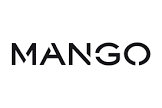Mango

Estimated electricity consumption
N/A
Countries of production presence
N/A
Mango is a Spanish fashion company that operates in the Apparel, Footwear & Acc Design sector. It was founded in 1984 by Isak Andic and Nahman Andic, and since then, it has become one of the largest fashion retailers in the world. Mango has a presence in more than 100 countries, with over 2,200 stores globally. The company has a strong commitment to sustainability and decarbonisation, and it has implemented various initiatives to reduce its carbon footprint and promote renewable energy.
One of Mango's key sustainability initiatives is its commitment to decarbonisation. The company has set a target to reduce its carbon footprint by 50% by 2030, compared to 2017 levels. To achieve this goal, Mango has implemented various measures, including the use of renewable energy, energy-efficient lighting, and the optimization of its supply chain. The company has also invested in the development of new materials and technologies that reduce the environmental impact of its products.
Mango has also implemented a corporate energy strategy that focuses on reducing its energy consumption and promoting renewable energy. The company has signed a Corporate Power Purchase Agreement (PPA) with a renewable energy provider to supply 100% of its energy needs in Spain. This agreement will enable Mango to reduce its carbon footprint by 36,000 tonnes of CO2 per year, which is equivalent to the emissions of 7,500 cars. The company has also installed solar panels on the roofs of its stores and warehouses, which generate renewable energy and reduce its reliance on the grid.
In addition to its corporate energy strategy, Mango has also implemented various initiatives to promote renewable energy and reduce its carbon footprint. The company has joined the RE100 initiative, which is a global initiative that brings together companies committed to using 100% renewable energy. Mango has also signed the Fashion Industry Charter for Climate Action, which is a UN initiative that aims to reduce the fashion industry's greenhouse gas emissions by 30% by 2030. Mango has committed to reducing its emissions by 30% by 2030, and to using 50% sustainable materials in its collections by 2022.
Mango has also implemented various measures to reduce its environmental impact throughout its supply chain. The company has developed a sustainable sourcing strategy that focuses on using sustainable materials and reducing waste. Mango has also implemented a circular economy model, which aims to reduce waste and promote the reuse and recycling of materials. The company has launched a program to collect used clothing from its customers, which is then recycled or repurposed.
Mango has also implemented various initiatives to promote sustainable fashion and reduce the environmental impact of its products. The company has launched a sustainable collection that uses sustainable materials such as organic cotton, recycled polyester, and Tencel. Mango has also implemented a program to reduce the use of plastic in its packaging, and it has introduced biodegradable bags in its stores.
In conclusion, Mango is a Spanish fashion company that operates in the Apparel, Footwear & Acc Design sector. The company has a strong commitment to sustainability and decarbonisation, and it has implemented various initiatives to reduce its carbon footprint and promote renewable energy. Mango has signed a Corporate Power Purchase Agreement (PPA) with a renewable energy provider to supply 100% of its energy needs in Spain, and it has installed solar panels on the roofs of its stores and warehouses. The company has also implemented various measures to reduce its environmental impact throughout its supply chain and promote sustainable fashion. Mango's commitment to sustainability and decarbonisation is a testament to its dedication to creating a more sustainable and responsible fashion industry.